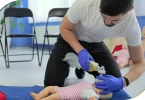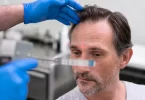Cancer remains one of the most pressing health challenges, touching nearly every community and family in the United States. Despite decades of progress, the fight against cancer still demands ongoing research, innovation, and unwavering advocacy. Breakthroughs in treatment, early detection, and patient support have only been possible through the collective efforts of researchers, healthcare providers, organizations, and everyday individuals, as Colleen Barker, Northampton, PA, explains. Participation in advocacy efforts, whether by supporting legislation, fundraising, or sharing personal stories, continues to fuel the momentum of research and new breakthroughs.
Contents
The Impact of Cancer and the Need for Advocacy
Cancer affects millions of individuals each year and continues to be a major health challenge in the United States. Research has played a critical role in improving early detection, treatment options, and survival rates, but there is still much work to be done. Service programs that offer emotional, financial, and logistical support are equally vital, helping patients and their families navigate the overwhelming journey that often accompanies a diagnosis.
Across the country, advocacy efforts have helped promote awareness and funding for research and patient services. Campaigns led by survivors, healthcare professionals, and community groups highlight the ongoing need for investment in science and support systems. Through steady engagement, these efforts continue to make an impact on public policy and healthcare access. Awareness events often serve as catalysts that not only educate but also inspire more people to join the cause.
Without strong advocacy, progress in cancer prevention, diagnosis, and treatment would slow drastically. Research breakthroughs such as targeted therapies, once considered distant goals, became possible because of committed advocacy and funding. Patient services, from transportation to counseling, also rely heavily on community-driven initiatives that amplify the voices of those impacted.
Challenges Facing Cancer Research and Services
Despite remarkable advancements, cancer research continues to face hurdles. Funding often falls short of what is needed to accelerate breakthroughs, leaving promising studies under-resourced. Clinical trials, which are essential for testing new treatments, encounter numerous barriers, including regulatory delays, recruitment challenges, and high costs. Each of these issues can slow the pace at which lifesaving therapies reach those who need them most.
Health disparities further complicate cancer care. Marginalized communities and rural populations frequently experience lower survival rates due to limited access to quality healthcare, early screenings, and clinical trials. An example of this is seen in breast cancer, where Black women in the U.S. are more likely to die from the disease despite having lower overall incidence rates compared to white women.
How Advocacy Drives Progress
Advocacy acts as a powerful catalyst for change in cancer research and service. By raising public awareness, influencing policy decisions, and pushing for increased funding, advocates have shaped the direction of scientific discovery and patient care over the past several decades. Moments like the passage of the 21st Century Cures Act demonstrate how organized efforts can lead to substantial government investments in medical research, and how critical it is to keep the momentum going.
Grassroots movements often put a face to the statistics, making it harder for policymakers to ignore the realities of those living with cancer. Personal stories shared at town halls, rallies, and legislative visits have led to expanded access to treatments and broader insurance coverage. Without persistent voices behind the scenes, many of the advancements we now take for granted might never have come to fruition.
Ways to Get Involved in Advocacy Efforts
Getting involved in cancer advocacy can take many forms, each equally impactful. Supporting legislative initiatives that prioritize funding for research and patient care is one approach that continues to drive systemic change. Writing letters, participating in town hall meetings, or engaging with elected officials can help amplify the urgency of these priorities, opening doors for more meaningful discussions.
Beyond policy work, many individuals find purpose in participating in awareness campaigns, charity runs, and fundraising events. Taking part in activities like Relay for Life or Light the Night not only raises critical funds but also fosters a deep sense of community among survivors, families, and advocates. These gatherings often serve as powerful reminders that collective action can influence real progress.
Even small gestures, such as volunteering with local organizations or sharing personal experiences on social media platforms, can ripple outward to create broader awareness. Advocacy is not limited to large-scale efforts; every voice adds volume to the call for better research, better treatments, and better support for those affected by cancer. Sometimes, a single story can inspire hundreds of others to step forward and make a difference.
The Role of Organizations
Organizations dedicated to cancer research and patient services play a pivotal role in transforming care. Research institutions drive innovation by conducting groundbreaking studies, while nonprofits work tirelessly to bridge gaps in care by offering support programs and educational resources. It is through these partnerships that many discoveries move from the lab to patient bedsides, changing countless lives in the process.
Collaboration remains central to creating meaningful change. Researchers, healthcare providers, advocates, and policymakers must continually work together to identify needs and push for solutions. Shared missions and pooled resources often lead to faster progress than isolated efforts.
Transparency and accountability are equally important. Trust grows when organizations openly share their goals, results, and financial stewardship with the public. By maintaining clear communication and engaging communities directly, these groups strengthen their ability to advocate effectively for patients and their families.







